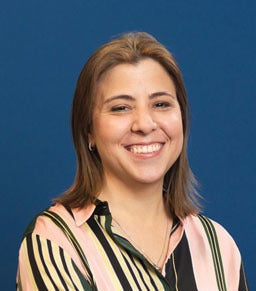
What brought you to Booking.com, and what do you like most about being in-house counsel?
Booking operates in an extremely interesting industry, at the intersection of tech and travel. On the tech side, this is an industry that is becoming increasingly regulated with a lot of ongoing discussions on what should be the “right” regulation. Working in this sector makes me feel a part of the creation of law for years to come. On the travel side, I really believe in the company’s mission of making it easier for everyone to experience the world. Travel helps people become more open-minded, curious, and flexible, and this mission inspires me every day!
I love a number of things about being an in-house lawyer, but I would like to flag two. First, I believe you truly experience “international work” in a global company. We are constantly navigating different regulatory environments (that are not always consistent with each other) and working with people of different cultures. Second, I really believe in the power of in-house teams as a force for good, ensuring the company grows its business in an ethical and sustainable way for the long term, and that gives me a lot of energy and purpose.
As chief legal officer for Booking.com, what challenges do you currently face, and how are you addressing them?
The highly fragmented regulatory landscape in Europe and beyond are tough for any business to navigate. From consumer protection regulations to travel law to data protection, many bodies are setting their own standards instead of harmonizing rules. This patchwork approach is really challenging but, of course, interesting to face as a lawyer.
More specifically to travel, this is a dynamic space in which we have generally seen (prior to COVID, of course) more and more people with the appetite to travel, and innovation across the industry, but with that comes the need for transparency, a level playing field, and legal certainty.
What are some skills the next generation of in-house counsel need to hone?
- Be curious, flexible, and a creative and pragmatic problem solver.
- Project gravitas and be effective in influencing stakeholders.
- Be proactive, resilient, and have the drive to get things done.
- Have sound judgment and be able to see the big picture.
- Have the courage to take positions and make tough judgment calls.
- Be a team player and a good listener — a diverse group will always find the best solution!
How did you first become involved in leadership in ACC Europe, and how has it helped you in your career?
I became an ACC Europe board member in October 2018, but I was involved with ACC before then, mostly attending the conferences and events and reading the ACC Docket. Since the start, ACC has helped me in several ways: networking, learning more about legal operations, opening my mind to new opportunities, and discovering trends in the industry (new technologies, pro bono for in-house lawyers, use of design thinking in the delivery of legal advice, to name a few), and generally just realizing how exciting and important it is to be an in-house lawyer!
How does your chapter promote meaningful connections and provide value to its members?
ACC Europe organizes events of different sizes and locations. I am able to attend the annual conference (full European scope) and certificate and network events in my country (Netherlands). This combination is perfect for me.
In addition, ACC Europe members are given access to a global network since ACC has offices across four continents. This can be very helpful if you work in an organization with operations across the globe.

What are ways members can become involved in your chapter?
- Attend events;
- Reach out to other members for best practices and outside counsel recommendations around the world;
- Author legal resources; and
- Speak at events and share their story — it is amazing what we can learn from one another!
How does being an ACC member help you gain time in your schedule? What does having more time mean for you?
Learning from others saves you time. It is that simple. For example, learning about the pitfalls of implementing a new technology helps prevent mistakes in execution, or reading an ACC Docket article on “checklists for managing global litigation” helps put the focus on what really matters and what can be learned from other in-house lawyers’ perspectives.
How have connections made through ACC helped you to be the best version of yourself?
Making connections and sitting on the ACC Europe board gives me a sense of community. It makes me feel part of a movement — I believe the in-house community is playing a huge role in shaping legal systems and practices. And ACC advocacy efforts in Europe, for example, to defend privilege of in-house lawyers is very inspiring and important work.
I also had the honor of being part of the 2017 Executive Leadership Institute, a master class for the next generation of general counsel. This was a transformational experience that helped me get the position I have today.
ACC has also given me the opportunity to spend time with my team outside the office (in places like Munich, Paris, Rome, among others), and engage them (e.g., awarding tickets to the ACC Europe Annual Conference as a reward for high performing team members).




